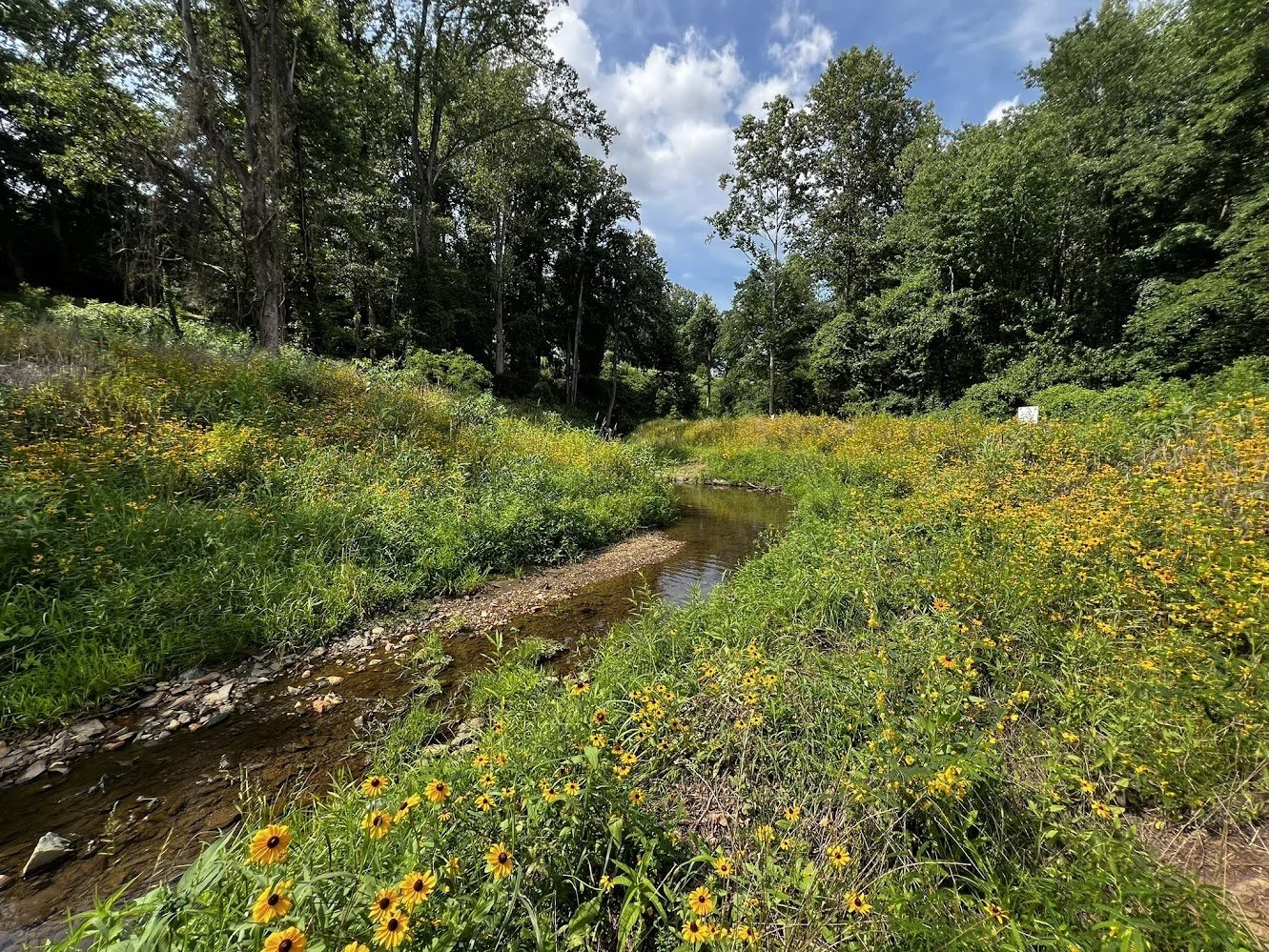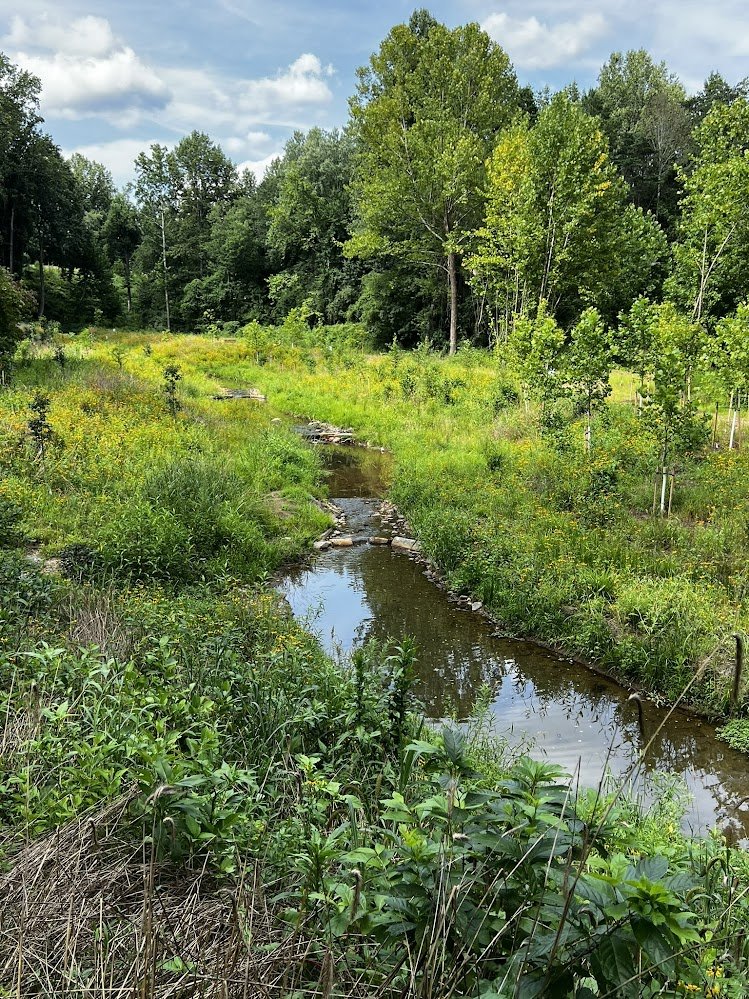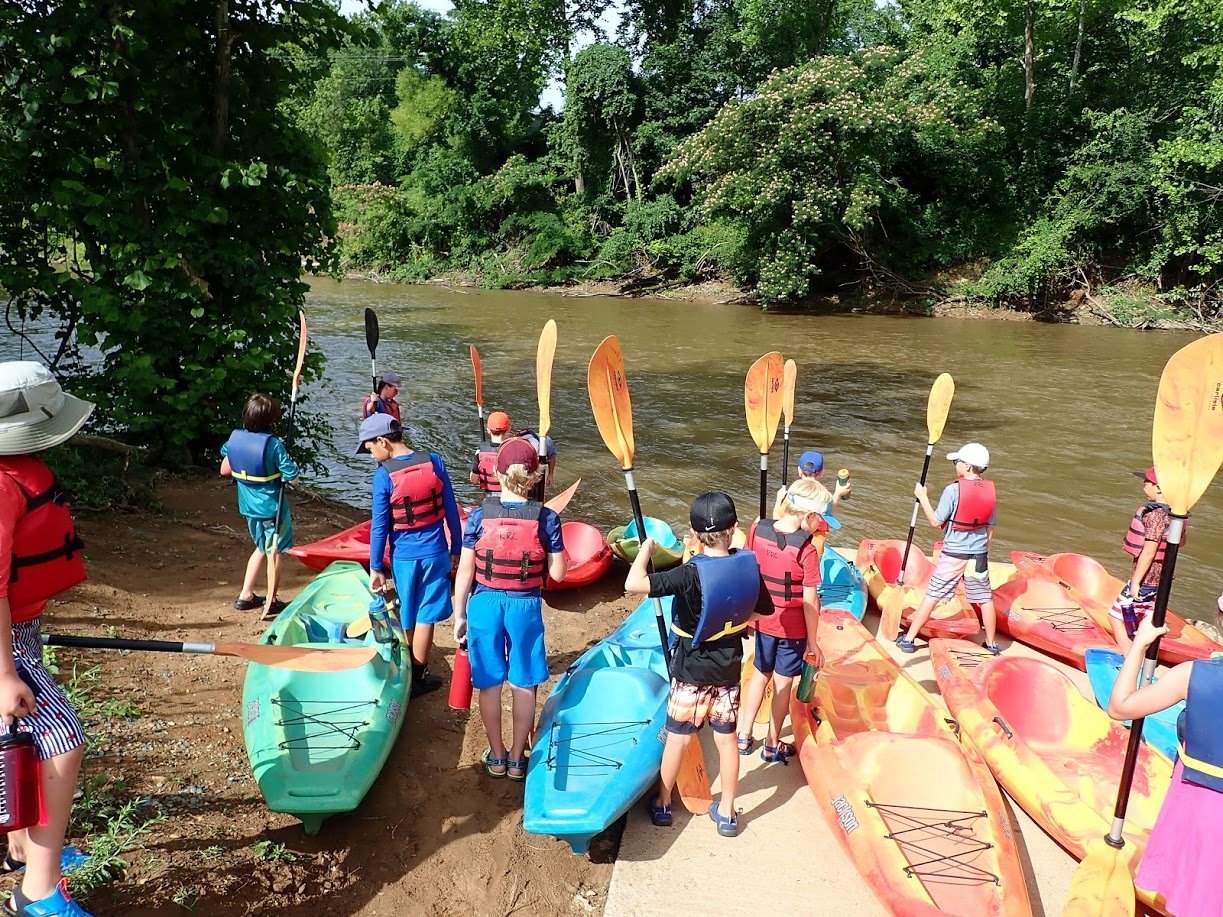Charlottesville, virginia
Biophilic Cities Partner City Since 2025
The City of Charlottesville, located in Central Virginia, is situated within the upper Piedmont Plateau at the foothills of the Blue Ridge Mountains and hosts a network of streams that flow into the Rivanna River and enjoys rich regional biodiversity – all of which are defining features of the City’s identity.
The City has long-standing commitments to sustainability, environmental stewardship, climate action, and community wellness – concepts aligned with biophilic principles and advanced by the community as a whole. Charlottesville’s Comprehensive Plan affirms this vision with the Priority Area to “Keep Charlottesville green, make it greener, and protect the natural environment and the many benefits it provides”. Its Environment, Climate, and Food Equity Chapter states: “Charlottesville will be an environmental leader, with healthy air, water, and ecosystems, as well as ample, high-quality, and accessible open space and natural areas, and a preserved and enhanced tree canopy. The Rivanna River and other waterbodies will be celebrated and protected, and environmentally-sound community access will be enhanced”. Institutional and community initiatives work together to preserve and maintain biophilic qualities, benefitting residents, workers, businesses, visitors, and the diverse species with whom we share our City and our region.
The City has incorporated sustainability and biophilic principles in major policies and programs, including the Comprehensive Plan, the Urban Rivanna River Corridor Plan, the Climate Action Plan, the Development Code, the Parks and Recreation Master Plan, and the Water Resources Protection Program. Some related efforts include stream restorations, public facilities that have been certified as high-performance buildings, urban forest management projects, schoolyard gardens, and climate action initiatives. Numerous community partners valuably contribute to the success of nature-based solutions with robust community engagement in stewardship and implementation.
Charlottesville’s biophilic character is the product of citywide commitments rather than any single program. Local government, schools, non-profits, residents, and community advocates together sustain the City’s natural assets, ensuring that our forests, rivers, community gardens, and walking and biking trails remain part of daily life. By aligning policies, programs, and partnerships around biophilic values, Charlottesville views participation in the Biophilic Cities Network not as an endpoint but as a tool to advance this ongoing journey.
City Contacts:
Kristel Riddervold, Office of Sustainability, Director
Steve Gaines, Parks and Recreation, Urban Forester
Dan Frisbee, Utilities, Water Resources Specialist
Gabriel Sherzada, Office of Sustainability, Climate Program Specialist
local spotlights
City of Charlottesville’s Comprehensive Plan
Parks and Recreation Master Plan
Climate Action Plan: Charlottesville’s Climate Action Plan was adopted in 2023 and continues to guide the City’s mitigation and climate adaptation efforts.
Urban River Corridor Plan: a joint effort between the City of Charlottesville and Albemarle County, along with other stakeholders, to develop a vision and action plan for the Rivanna River.
Charlottesville Climate Action and Sustainability Dashboard: a tool available to community members to track the City’s progress towards meeting the goals outlined in the Climate Action Plan.
Water Resources Protection Program
Resilient Together: a collaborative initiative involving the City of Charlottesville, Albemarle County, and the University of Virginia aimed at enhancing community resilience against the regional impacts of climate change through planning, engagement, and action.
Charlottesville Invasive Plant Partnership: a neighborhood-driven effort co-led by the City’s Office of Sustainability and Urban Forestry that mobilizes residents to steward trees within the City by surveying the impact of invasive vines and leading workshops on how to remove them.





















